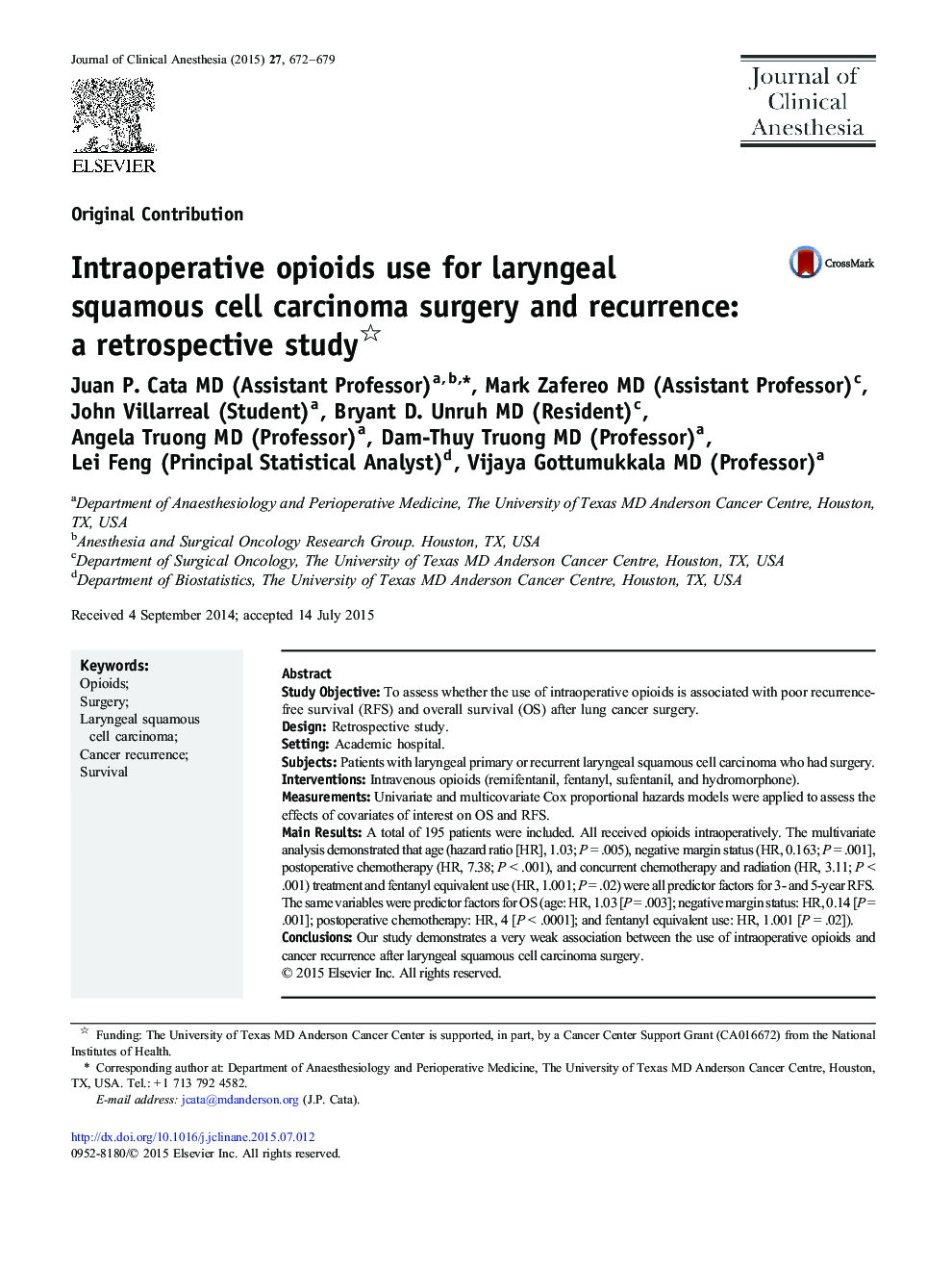| Article ID | Journal | Published Year | Pages | File Type |
|---|---|---|---|---|
| 2762200 | Journal of Clinical Anesthesia | 2015 | 8 Pages |
Study ObjectiveTo assess whether the use of intraoperative opioids is associated with poor recurrence-free survival (RFS) and overall survival (OS) after lung cancer surgery.DesignRetrospective study.SettingAcademic hospital.SubjectsPatients with laryngeal primary or recurrent laryngeal squamous cell carcinoma who had surgery.InterventionsIntravenous opioids (remifentanil, fentanyl, sufentanil, and hydromorphone).MeasurementsUnivariate and multicovariate Cox proportional hazards models were applied to assess the effects of covariates of interest on OS and RFS.Main ResultsA total of 195 patients were included. All received opioids intraoperatively. The multivariate analysis demonstrated that age (hazard ratio [HR], 1.03; P = .005), negative margin status (HR, 0.163; P = .001], postoperative chemotherapy (HR, 7.38; P < .001), and concurrent chemotherapy and radiation (HR, 3.11; P < .001) treatment and fentanyl equivalent use (HR, 1.001; P = .02) were all predictor factors for 3- and 5-year RFS. The same variables were predictor factors for OS (age: HR, 1.03 [P = .003]; negative margin status: HR, 0.14 [P = .001]; postoperative chemotherapy: HR, 4 [P < .0001]; and fentanyl equivalent use: HR, 1.001 [P = .02]).ConclusionsOur study demonstrates a very weak association between the use of intraoperative opioids and cancer recurrence after laryngeal squamous cell carcinoma surgery.
